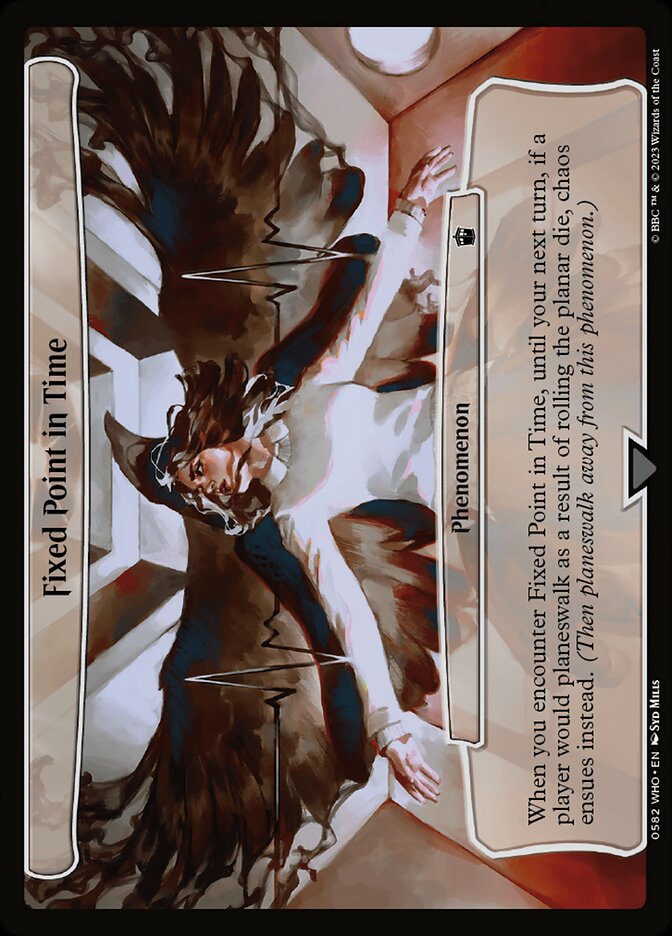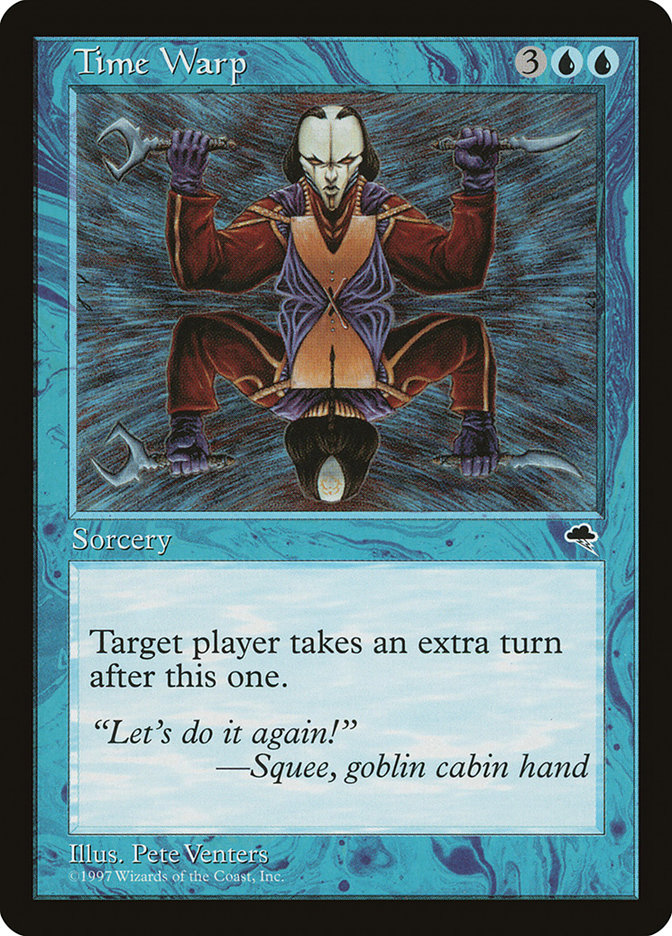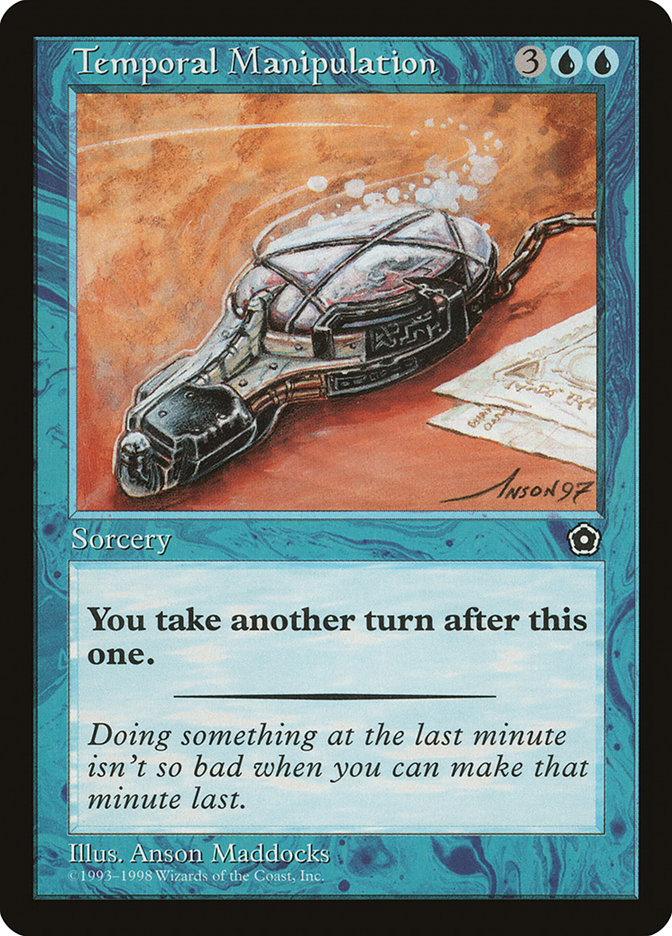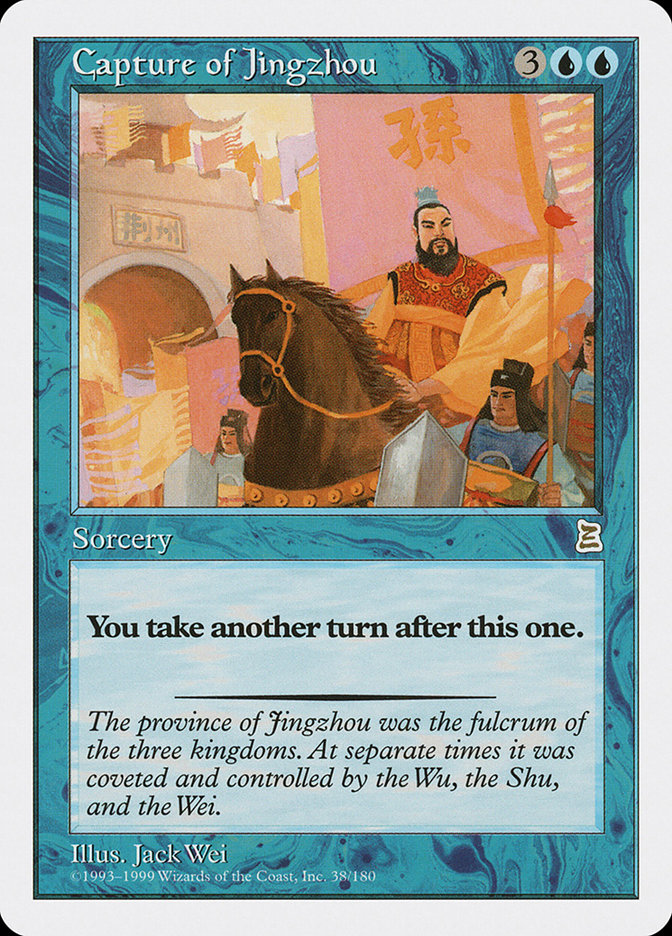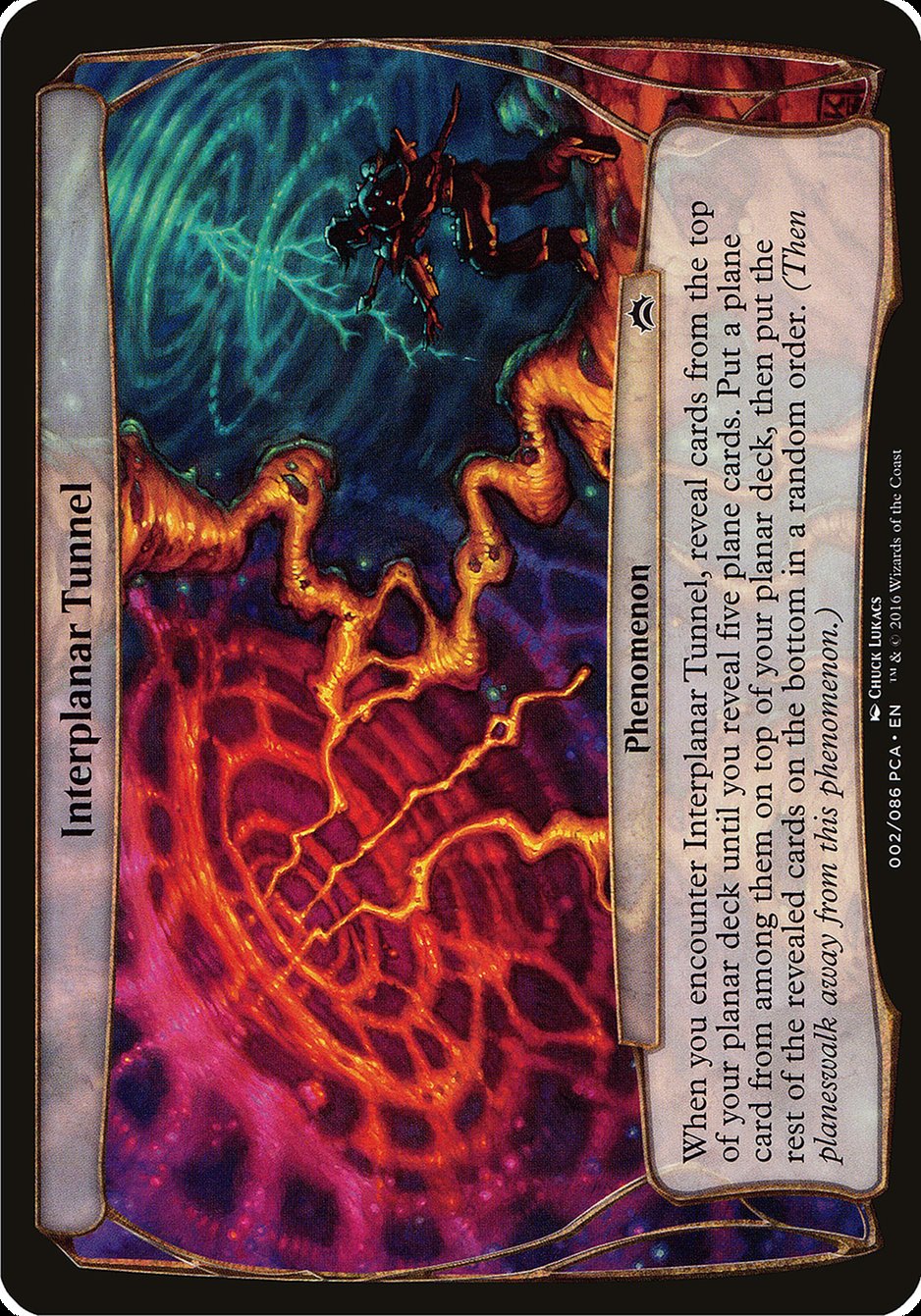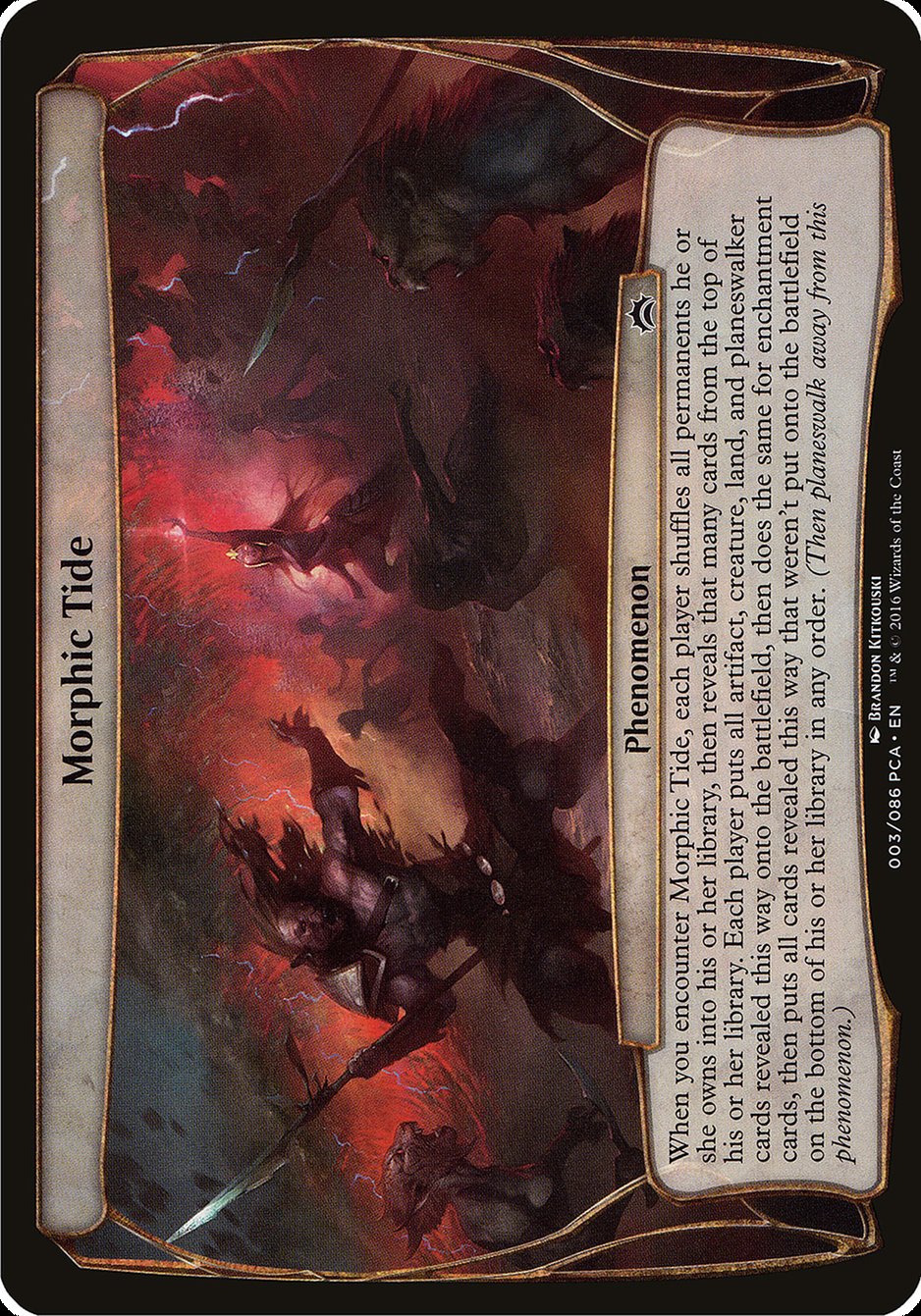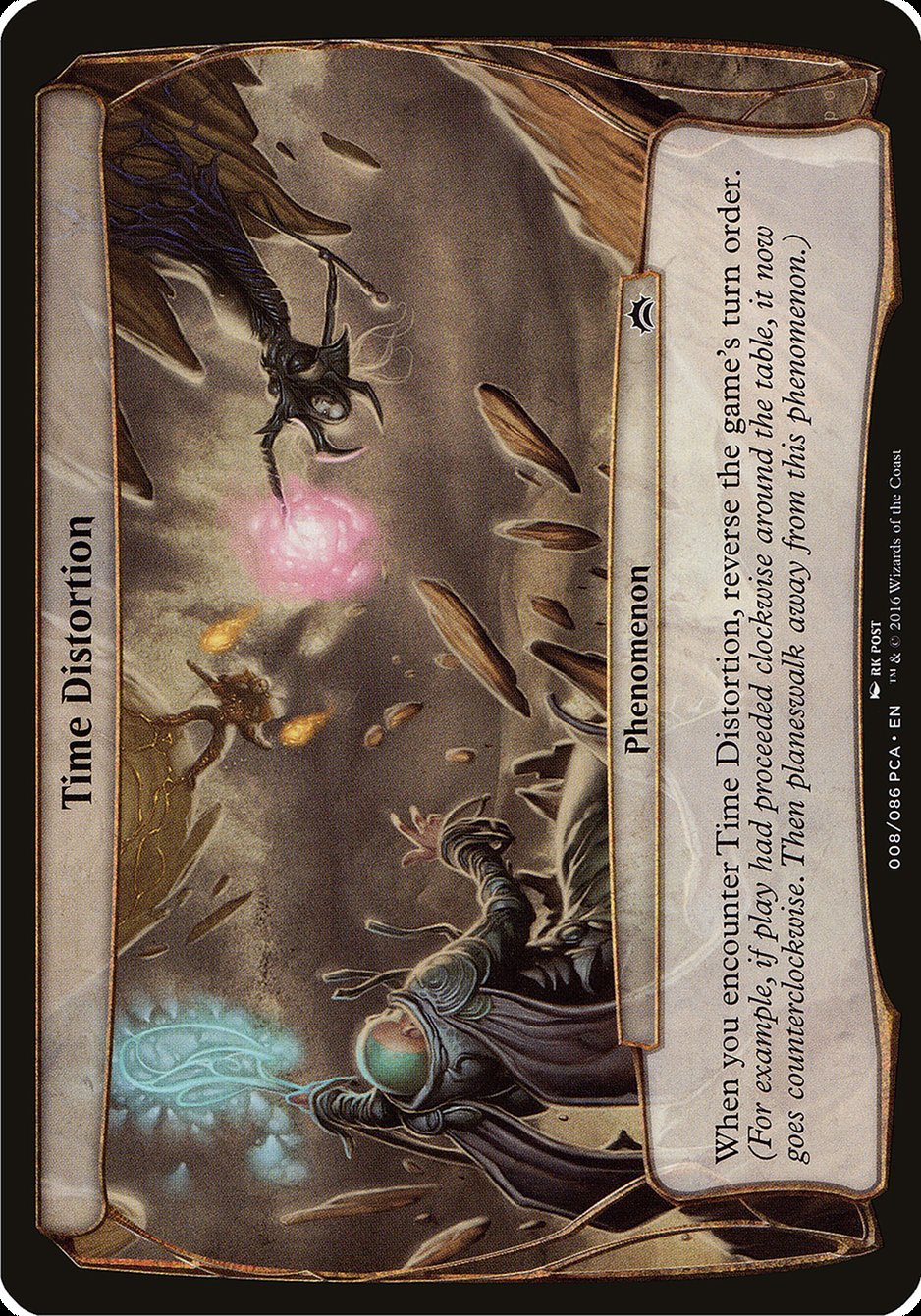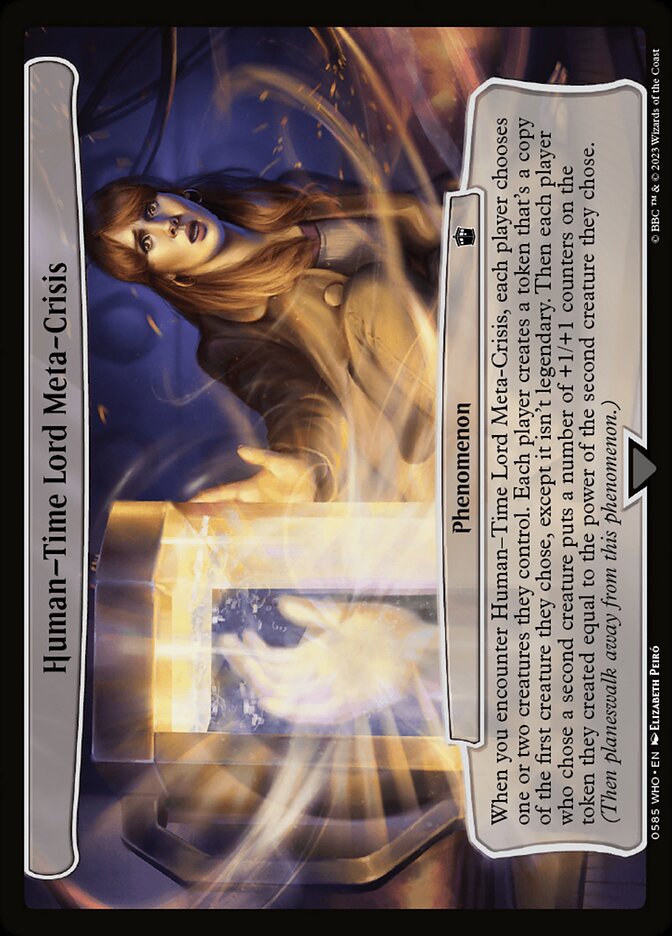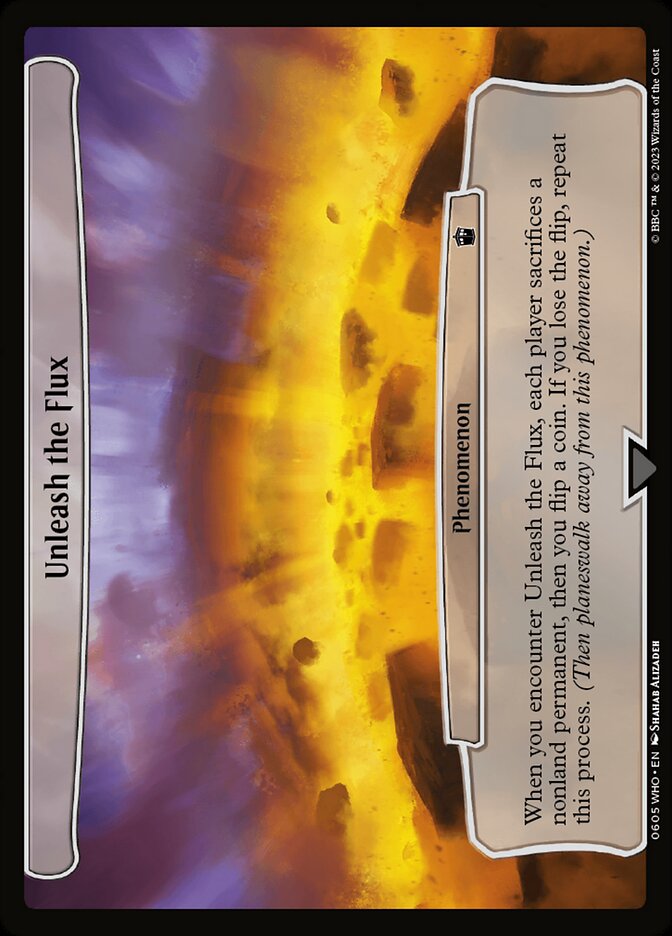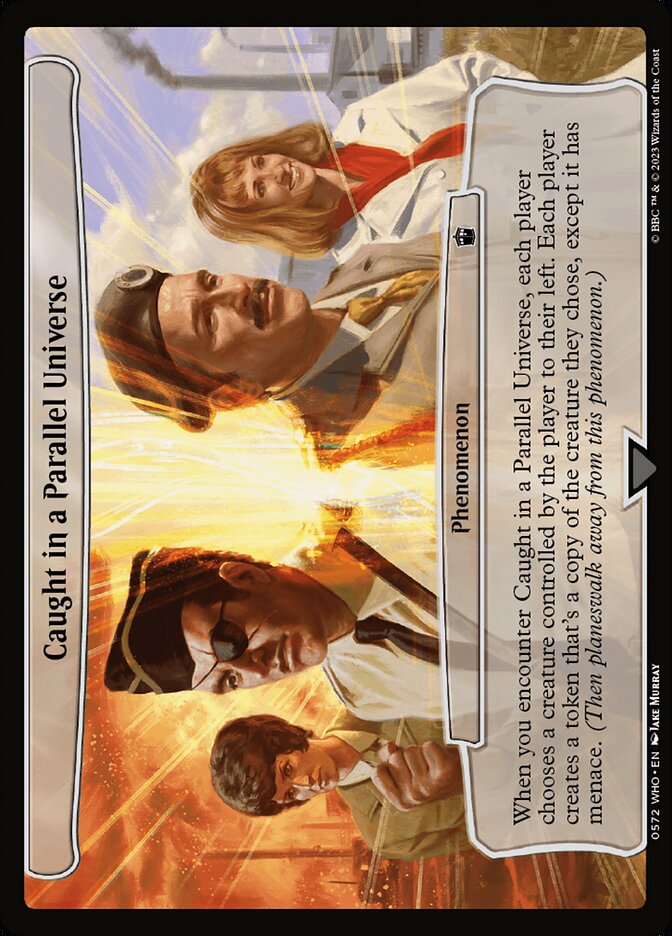Fixed Point in Time MTG Card
| Rarity | Common |
| Type | Phenomenon |
| Released | 2023-10-13 |
| Set symbol | |
| Set name | Doctor Who |
| Set code | WHO |
| Number | 582 |
| Frame | 2015 |
| Layout | Planar |
| Border | Black |
| Illustred by | Syd Mills |
Text of card
When you encounter Fixed Point in Time, until your next turn, if a player would planeswalk as a result of rolling the planar die, chaos ensues instead. (Then planeswalk away from this phenomenon.)
Cards like Fixed Point in Time
Fixed Point in Time is an intriguing card that offers MTG players a unique game strategy. Comparable to time-warping cards like Time Warp itself, Fixed Point in Time allows players to take an extra turn. Yet it presents a different approach to time manipulation. Instead of an unconditional extra turn like Time Warp, it grants an additional turn only under certain conditions, adding a layer of strategy.
Similarly, another card that plays with turn sequences is Temporal Manipulation, which, much like Time Warp, provides a straightforward extra turn for five mana. Comparatively, Fixed Point in Time requires a more complex setup—something seasoned players might appreciate for the tactical depth it adds. Then there is Capture of Jingzhou, a powerhouse in its own right, akin to the aforementioned cards in effect but distinguished by its historical Portal Three Kingdoms set origins.
Examining these cards side by side, Fixed Point in Time offers players a more nuanced option in taking an extra turn. It may not have the immediacy of Time Warp or Temporal Manipulation, but for those who prefer a game with intricate plays and conditional rewards, it stands out as an engaging alternative within the pantheon of MTG turn-based cards.
Cards similar to Fixed Point in Time by color, type and mana cost
Card Pros
Card Advantage: Fixed Point in Time enables the player to potentially draw extra cards, bolstering their hand and increasing strategic options. In any matchup, having an edge in card advantage can often translate into a winning position.
Resource Acceleration: By skipping the player’s untap step, this card accelerates gameplay, effectively providing a burst of resources that could lead to casting high-cost spells earlier than usual or outpacing an opponent’s development.
Instant Speed: The ability to play Fixed Point in Time at instant speed means it can be deployed with great flexibility. Whether it’s in response to an opponent’s action or at the end of their turn, instant-speed spells allow for unexpected plays and retain the element of surprise, which is crucial for maintaining the upper hand.
Card Cons
Discard Requirement: Fixed Point in Time necessitates a card discard, which can be a setback if you’re already struggling to maintain hand advantage. This adds a layer of strategy but could potentially backfire if you lack sufficient cards to make the trade-off worthwhile.
Specific Mana Cost: The card demands a blend of different mana types, which may not mesh with decks that don’t tap into those specific resources. It can be a challenge fitting it into a mono-color deck without adequate mana fixing.
Comparatively High Mana Cost: While the spell’s capability to choose and play card with no time counters undoubtedly has its merits, the essence of having a high mana cost means it competes for a spot against other substantial game-changing options, potentially slowing down your early to mid-game progress.
Reasons to Include Fixed Point in Time in Your Collection
Versatility: Fixed Point in Time offers a unique blend of time manipulation abilities, making it a powerful addition to control and combo decks that aim to disrupt opponents’ strategies or maximize your own turns.
Combo Potential: This card’s capability to manipulate turn order can exponentially enhance combos, particularly those that are centered around ‘taking an extra turn’ mechanics or require specific timing to execute a winning strategy.
Meta-Relevance: As the competitive scene evolves, decks that can gain an edge by predicting and countering opponents’ moves are invaluable. Fixed Point in Time aligns perfectly with such strategies, ensuring it remains a relevant and potentially meta-defining card.
How to beat
The card Fixed Point in Time presents an intriguing challenge on the battlefield, but it certainly has its vulnerabilities. This card enables a player to take an extra turn, which can be game-changing and often feels like an uphill battle to counter. However, beating this card is all about anticipation and preparation. Having countermeasures like instant speed disruption or cards that restrict actions during your opponent’s turn can be pivotal. Cards that prevent casting from outside the battlefield, like Drannith Magistrate, could stifle your opponent’s plans, while Teferi, Time Raveler can limit them to play only at sorcery speed, undermining the surprise factor of Fixed Point in Time.
Moreover, if you can apply sufficient pressure early in the game, you might exhaust your opponent’s resources, making it harder for them to effectively utilize Fixed Point in Time to its full potential. Resource denial strategies, such as land destruction or discard effects, can also be effective, forcing your opponent to make tough decisions and potentially sacrifice their chance to play their pivotal card. Ultimately, while Fixed Point in Time can feel daunting, it can be mitigated with foresight, disruption, and strategic pressure on your opponent’s resources.
Where to buy
If you're looking to purchase Fixed Point in Time MTG card by a specific set like Doctor Who, there are several reliable options to consider. One of the primary sources is your local game store, where you can often find booster packs, individual cards, and preconstructed decks from current and some past sets. They often offer the added benefit of a community where you can trade with other players.
For a broader inventory, particularly of older sets, online marketplaces like TCGPlayer, Card Kingdom and Card Market offer extensive selections and allow you to search for cards from specific sets. Larger e-commerce platforms like eBay and Amazon also have listings from various sellers, which can be a good place to look for sealed product and rare finds.
Additionally, Magic’s official site often has a store locator and retailer lists for finding Wizards of the Coast licensed products. Remember to check for authenticity and the condition of the cards when purchasing, especially from individual sellers on larger marketplaces.
Below is a list of some store websites where you can buy the Fixed Point in Time and other MTG cards:
 BUY NOW
BUY NOW BurnMana is an official partner of TCGPlayer
- eBay
- Card Kingdom
- Card Market
- Star City Games
- CoolStuffInc
- MTG Mint Card
- Hareruya
- Troll and Toad
- ABU Games
- Card Hoarder Magic Online
- MTGO Traders Magic Online
See MTG Products
